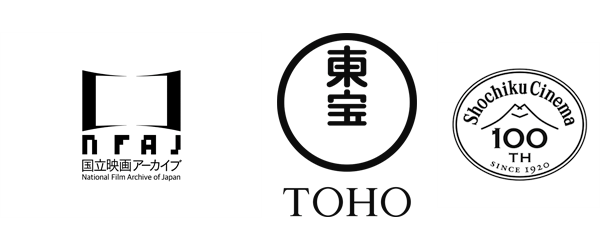SPOILER WARNING The following notes give away some of the plot.
Our habitual tools for categorising films and filmmakers seem woefully inadequate for an encompassing approach to Takashi Miike (and, by extension, to several decades of Japanese film production and distribution). The critic Tony Rayns once appropriately described Miike as ‘a law unto himself’. More recently, the noted American scholar of Japanese cinema Aaron Gerow devoted an entire essay to the difficulty of studying Miike, observing that even the director’s style resists our preferred paradigms for understanding cinema, demonstrating, on the one hand, an excess of dizzying editing that sets him apart from art cinema, yet on the other hand often featuring long takes that defy his inclusion in the postmodern MTV-style. Just as Miike, with a good decade’s worth of selections at Cannes, Berlin and Venice under his belt, seems comfortably poised to enter the world cinema pantheon, it seems we have a problem.
But perhaps we shouldn’t be too shocked to find that Miike defies easy categorisation. After all, his international breakthrough Audition (his 32nd work as a director) made an impact precisely because it refused to follow expectations. It was made for that purpose, in 1999, the same year as many other projects hoping to benefit from the massive success of the Hideo Nakata-directed J-horror touchstone Ring (1998). Two of the production companies behind Audition had been involved with the Ring cycle, and Audition was set up as a horror movie to follow in its footsteps, but also to consciously deviate from the J-horror template. Based on a novel by Ryu Murakami, a specialist in very adult tales of fractured human relations and urban despair, Audition demonstrates a conspicuous lack of supernatural elements and ingredients that would appeal to the teen demographic which helped make Ring a hit. Miike was chosen as a director because he was not, at that time, associated with the horror genre: he had been active predominantly in yakuza films and had occasionally reached a wider mainstream audience, as with the theatrical films Andromedia (1998), a science fiction film that was a vehicle for an all-girl pop group, and White-Collar Worker Kintaro (1999), an adaptation of a popular manga about a heroic corporate worker who is also a single father.
The result is well known: Audition’s cautiously paced first hour contributes to the sensory impact of the subsequent climactic violence, which sidestepped the expectations of international film festival and art cinema audiences as they settled into the familiar beats of a placid relationship drama, only to have that comfortable rug violently pulled from under them. Yet this carefully weighed interplay between languid drama and unremitting violence would be largely obscured during the film’s subsequent shelf life as one of the foundational pillars of the Asia Extreme wave.
Tom Mes, Sight & Sound, January 2018
Miike may be as prolific as Fassbinder was in his heyday, but the films he makes are closer in spirit to the best by the veteran fringe Hollywood director Joseph H. Lewis: genre movies, made on a for-hire basis, with the generic elements left on auto-pilot while the director busies himself with form, rhythm, texture and the implications of the characters’ sexual pathologies. To borrow Manny Farber’s famous distinction, Miike makes ‘termite art’ (‘no ambitions towards gilt culture but… involved in a kind of squandering-beaverish endeavour that isn’t anywhere or for anything’) rather than the kind of ‘white elephant art’ beloved of A-list festival programmers.
No matter how disparate, Miike’s work has a number of defining characteristics. First, a nonconformist approach to film grammar and narrative structure. Like many Hong Kong directors, Miike has no time for Hollywood approaches to visual storytelling: no master shots with inserted close-ups, no reverse-angle cutting. Each shot in his films, whether it lasts a few frames or a few minutes, whether it’s formally composed or hand-held, is a new camera set-up. At the same time, he is no respecter of orthodox plotting. Second, an Imamura-like conviction that what goes on below the belt is as interesting as what goes on in the back of the mind. Third, a clear sense that the classical Japanese virtues of modesty, emotional restraint and self-denial – all present and correct to some degree in everything he makes – need to be balanced by liberating excesses, as found in neighbouring Asian cultures. Fourth, a very open-minded view of the spectrum of human sexuality; no straight director has introduced more gay elements into his films, or shown gay sex with more gusto. Fifth, a wicked, absurdist sense of humour.
Audition, which Miike introduced in Rotterdam as ‘a film I know some of you will intensely dislike’, invites a feminist reading. Video-company executive Aoyama, who lost his wife seven years earlier, is urged by his teenage son to remarry – to stop him from ageing so fast and becoming lonely. A colleague reminds Aoyama of an abandoned feature film project and suggests mounting auditions for the female lead, which will allow him to pick a potential bride. He’s greatly attracted to a 24-year-old woman with dance training; her seeming docility and politesse are precisely the qualities he craves in a woman. His nightmarish comeuppance at her hands may be no more than a projection of his latent paranoia – or it may actually be true that she is vengefully obsessed with acupuncture needles and amputations. Miike constructs the climactic sequences as a series of alarming time-slips between alternative realities, but leaves no doubt that the central issue is the effect on women of Japanese male sexual attitudes, assumptions and actions.
Like Dead or Alive, Audition came to Miike as a commission; it was another script he altered substantially before and during production. (In the original story by Ryu Murakami the woman is apparently a deranged harpy, furious when she discovers that the man dating her has been married before.) But the critics who showered the film with prizes in Rotterdam, and some who have written about it since, appear to find a qualitative difference between Audition and Miike’s gangster films, probably because of its emphases on psychology and sexual politics. I think this supposed difference is an illusion; Miike thinks in vigorously cinematic terms whatever material he’s reworking, and his iconoclastic ideas are just as clearly expressed through action as they are through character.
Tony Rayns, Sight and Sound, May 2000
AUDITION (ÔDISHON)
Director: Takashi Miike
©/Production Company: Omega Project
Production Companies: Art Boat, Creators Company Connection, AFDF Korea, Body Sonic
In association with: Filmface
Executive Producer: Toyoyuki Yokohama
Producers: Satoshi Fukushima, Akemi Suyama
Line Producer: Jun’ichi Endô
Production Manager: Gô Suzuki
Assistant Director: Fumiake Katô
Screenplay: Daisuke Tengan
Based on the novel by: Ryu Murakami
Director of Photography: Hideo Yamamoto
Lighting Director: Akira Ono
Special Effects Fabrication: Yûichi Matsui
Editor: Yasushi Shimamura
Production Designer: Tatsuo Ozeki
Costume Designer: Tomoe Kumagai
Music: Kôji Endô
Sound Mixer: Jun Nakamura
Sound Effects: Kenji Shibasaki
Cast
Ryô Ishibashi (Shigeharu Aoyama)
Eihi Shiina (Asami Yamazaki)
Tetsu Sawaki (Shigehiko Aoyama)
Jun Kunimura (Yasuhisa Yoshikawa)
Renji Ishibashi (old man in wheelchair)
Miyuki Matsuda (Ryôko Aoyama)
Toshie Negishi (Rie)
Ren Ôsugi (Shibata)
Shigeru Saiki (toastmaster)
Ken Teruishi (director)
Yuriko Hirooka (Michiyo Yanagida)
Fumiyo Kohinata (TV station producer)
Misato Nakamura (Misuzu Takagi)
Masato Arima (Shigeharu as a child)
Ayaka Izumi (Asami as a child)
Nattsu Tanahashi (hotel front desk)
Kimiko Tachibana (FM announcer)
Tatsuo Endô (doctor)
Koshio Shintôji (nurse)
Kanji Tsuda (bartender)
Party (gangster)
Japan/South Korea 1999©
115 mins
J-HORROR WEEKENDER
Ring (Ringu)
Fri 29 Oct 18:10
Dark Water (Honogurai mizu no soko kara)
Fri 29 Oct 20:30
Cure (Kyua)
Sat 30 Oct 18:00
Pulse (Kairo)
Sat 30 Oct 20:40
Audition (Ôdishon)
Sun 31 Oct 15:20
Ichi the Killer (Koroshiya 1)
Sun 31 Oct 18:00
Supported by

In partnership wtih

With special thanks to

With the kind support of:
Janus Films/The Criterion Collection, Kadokawa Corporation, Kawakita Memorial Film Institute, Kokusai Hoei Co. Ltd, Nikkatsu Corporation, Toei Co. Ltd
BFI SOUTHBANK
Welcome to the home of great film and TV, with three cinemas and a studio, a world-class library, regular exhibitions and a pioneering Mediatheque with 1000s of free titles for you to explore. Browse special-edition merchandise in the BFI Shop.We're also pleased to offer you a unique new space, the BFI Riverfront – with unrivalled riverside views of Waterloo Bridge and beyond, a delicious seasonal menu, plus a stylish balcony bar for cocktails or special events. Come and enjoy a pre-cinema dinner or a drink on the balcony as the sun goes down.
BECOME A BFI MEMBER
Enjoy a great package of film benefits including priority booking at BFI Southbank and BFI Festivals. Join today at bfi.org.uk/join
BFI PLAYER
We are always open online on BFI Player where you can watch the best new, cult & classic cinema on demand. Showcasing hand-picked landmark British and independent titles, films are available to watch in three distinct ways: Subscription, Rentals & Free to view.
See something different today on player.bfi.org.uk
Join the BFI mailing list for regular programme updates. Not yet registered? Create a new account at www.bfi.org.uk/signup
Programme notes and credits compiled by the BFI Documentation Unit
Notes may be edited or abridged
Questions/comments? Contact the Programme Notes team by email

